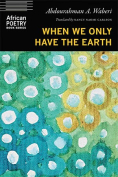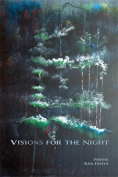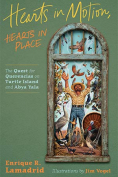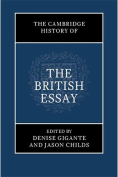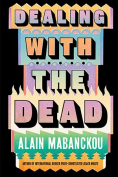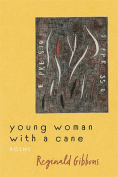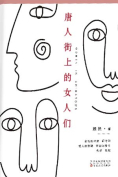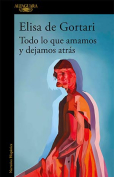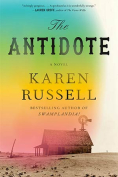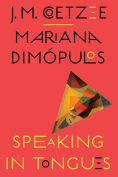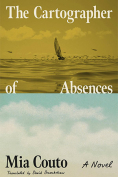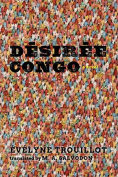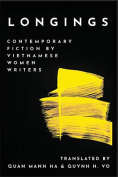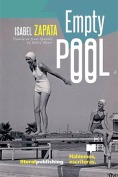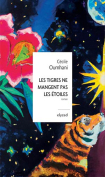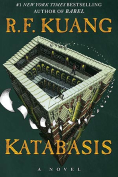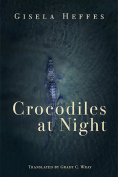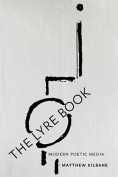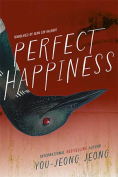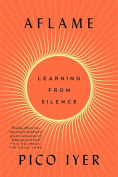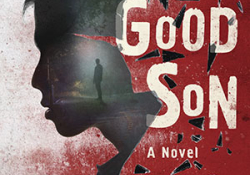Perfect Happiness by You-Jeong Jeong
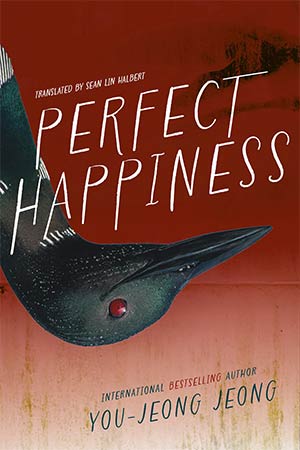
Charlottesville, Virginia. Creature Publishing. 2025. 358 pages.
We all have our personal definitions of “happiness.” For many, it is bound up with our relationships, or our careers, or perhaps our ambitions. For Yuna Shin, the narcissistic vortex at the heart of You-Jeong Jeong’s psychological thriller Perfect Happiness, that term has a very specific meaning: “Happiness,” she darkly tells her husband-to-be, Eun-ho, “is subtraction. It’s getting rid of the possibility of unhappiness until life becomes perfect.” Such statements, which resonate far beyond the page, hinting at something menacing just around the corner, infuse Perfect Happiness with a near-constant frisson, a sense of something unsettlingly strange, bordering on terrifying. Jeong, an author of crime novels and psychological thrillers, has been called the Stephen King of South Korea, and this latest book of hers available in English confirms her status as an important figure in genre fiction.
Indeed, Jeong is part of a surge in translated Korean genre fiction that began just two decades ago with Cho Se-hui’s speculative linked novel The Dwarf. Since then, anglophone readers have been treated to a wealth of short- and long-form science fiction, horror, surrealism, Weird, and magical realism from the Asian nation. Korean literature gained even more attention just over a year ago when Han Kang won the Nobel Prize in Literature. Stories and novels in translation by Jeong, Han Kang, Bae Myung-hoon, Cho Yeeun, Choi Jin-young, Bora Chung, Djuna, Ha Seong-nan, Kim Bo-young, and many others have enriched anglophone literature with their uniquely Korean approaches to describing family, culture, politics, and relationships.
Jeong’s Perfect Happiness is the third of the author’s novels to be translated into English. Her first, The Good Son (2016; Eng. 2018), centers on a young man trying to uncover the facts of his mother’s murder, while Seven Years of Darkness (2011; Eng. 2020) delves into a series of crimes that destabilize a community. Perfect Happiness, like the former, is a domestic thriller, its narrative focal point bouncing between several different characters, thus creating a web with Yuna Shin sitting at the center like a scheming, lethal spider.
We learn about the fear and uncertainty Yuna inspires in her six-year-old daughter, Jiyoo; her ex-husband, Joon-young; her second husband, Eun-ho; her sister, Jane; and peripheral characters who have known her in the past. It appears wherever Yuna goes, someone ends up dead, whether it’s a boyfriend who suddenly dumped her; her father, who fired her from his company after learning that she had been stealing money; or her stepson, whose existence stood in the way of what she thinks her “perfect” family should look like. These seeming accidents happen at long intervals, and no one—until now—has thought to put the pieces together.
When Eun-ho’s young son dies under suspicious circumstances, however, his father starts to question his wife’s actions—and sanity. Everyone in Yuna’s life, including Eun-ho, seems to be locked in their own world of fear, willingly staying away from one another lest they incur Yuna’s wrath. Jiyoo knows that she shouldn’t show too much affection for her grandmother, her aunt Jane, or even her father and stepfather, since her mother, whose moods change in an instant, might accuse her of loving them more. Jiyoo, a quiet, hyperobedient daughter who watches her mother’s every move out of a sense of self-preservation, lives in constant terror that her mother will abandon her.
Abandonment, in fact, is central to this story, since it was what apparently drove Yuna over the edge. Sent to live with her grandparents at Half Moon Marsh when she was seven during a difficult time in her family’s life, Yuna suffered psychological abuse at the hands of her grandmother and begged her father, whenever he visited, to bring her home. Each time he told her she needed to stay longer, she became more violent and enraged, directing her anger at her older sister, since it was Jane who was able to stay at home. For two years, Yuna stewed in her anger, coming home with a hatred of her sister (specifically) and her family (generally) that fueled a murderous approach to finding happiness. After all, Yuna believes in “subtraction.”
The slow, quiet buildup of suspicion and fear that takes us deeper into Perfect Happiness reveals that Jeong is the kind of author who is comfortable manipulating time. Scenes in which Eun-ho, for instance, or Jane mentally relive encounters with Yuna stretch out into their own ministories, the narrator luxuriating in mood- and tone-painting, allowing the reader to understand more fully why the people in Yuna’s life have tolerated her narcissistic, controlling personality. Guilt, passion, fear—these have bound people to Yuna until they realize they don’t know how to extricate themselves.
The subtleties of the menace, rage, and fear in Perfect Happiness are rendered brilliantly in English, thanks to Sean Lin Halbert’s careful, artful translation. Like any successful rendering of a novel into another language, Halbert’s makes us forget everything except for the story in front of us; at no time did this reader even think about the translator’s choice of words. Smooth and clean as the still lake at Half Moon Marsh before the snow falls, Perfect Happiness deliberately draws us in, making our hearts pound and the blood rush to our heads, but Jeong never hurries us into anything. She tells her story the way it needs to be told.
Rachel S. Cordasco
Madison, Wisconsin

